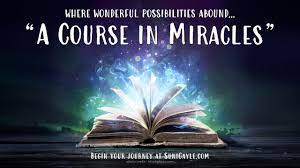Books have long held the power to transport us to distant lands, to introduce us to fascinating characters, and to open doors to unexplored realms of knowledge. In a world dominated by rapid technological advancements, the charm of a well-crafted a course in miracles remains unparalleled. With each turn of the page, we embark on a journey that allows us to escape the confines of reality and delve into the boundless realms of imagination.
The act of reading itself is a meditative experience, fostering focus and concentration in a world filled with distractions. Whether it’s the rustle of pages in a physical book or the gentle swipe of a screen in the digital age, the act of reading demands our attention and rewards us with insights that broaden our horizons. Books, spanning genres from fiction to non-fiction, from fantasy to philosophy, cater to the varied tastes and interests of readers, making them a timeless source of both entertainment and enlightenment.
In the realm of fiction, books have the extraordinary ability to create entire universes from scratch. Authors weave intricate plots, breathe life into characters, and construct settings so vivid that readers can lose themselves entirely within their pages. The magic of fiction lies not only in its ability to offer an escape from reality, but also in its capacity to reflect upon the complexities of the human experience, fostering empathy and understanding.
On the other hand, non-fiction books stand as invaluable repositories of knowledge. They provide us with insights into history, science, philosophy, and a myriad of other subjects. They are not just vessels of information but also catalysts for critical thinking and personal growth. The act of reading non-fiction is akin to engaging in a profound conversation with the author, allowing us to broaden our intellectual horizons and challenge our preconceptions.
In a world flooded with quick bites of information and fleeting digital content, the enduring appeal of books becomes even more apparent. They invite us to slow down, to savor the written word, and to contemplate the depths of ideas presented by the author. The smell of paper, the weight of a hardcover, the dog-eared pages of a well-loved tome – these sensory experiences become intertwined with the knowledge and emotions a book imparts, making the reading experience not just intellectual but also deeply emotional.
